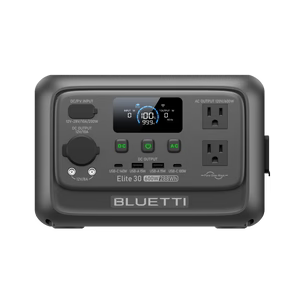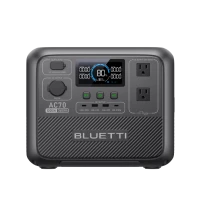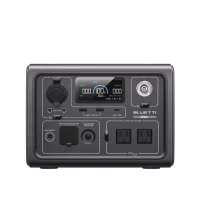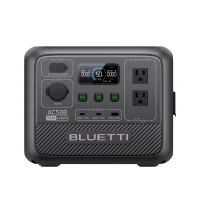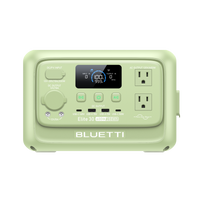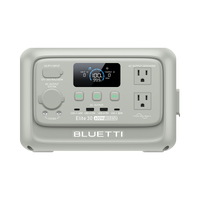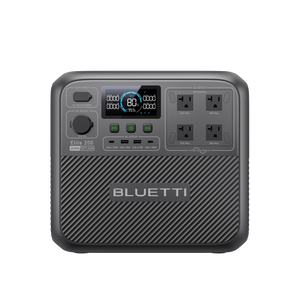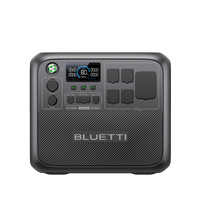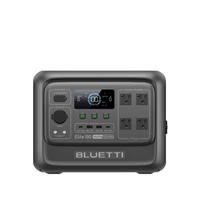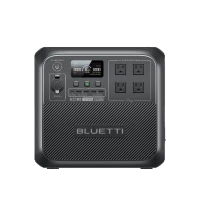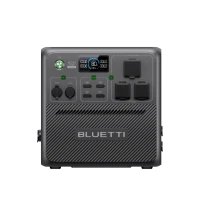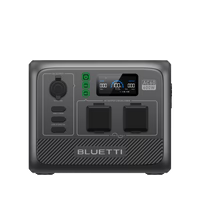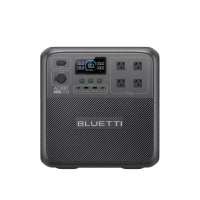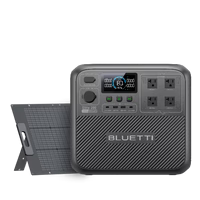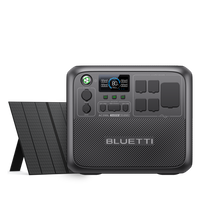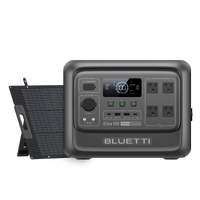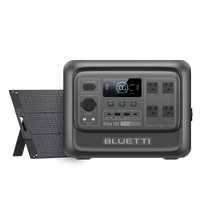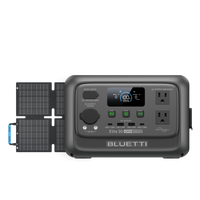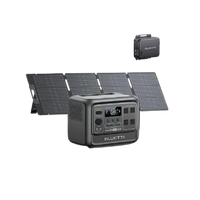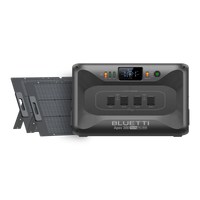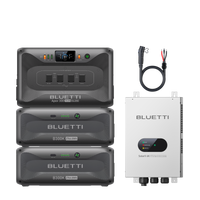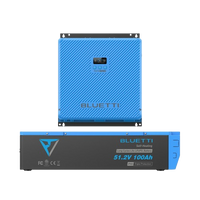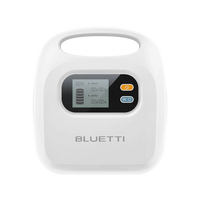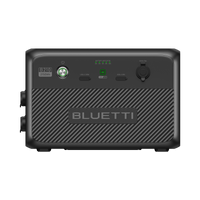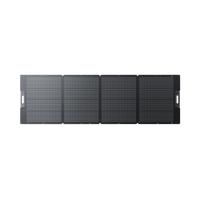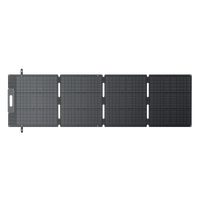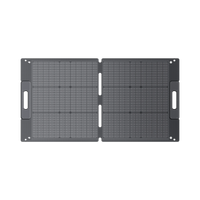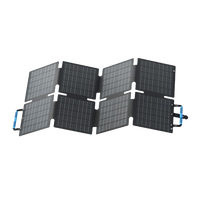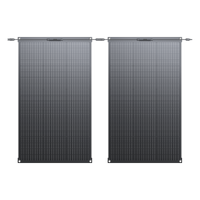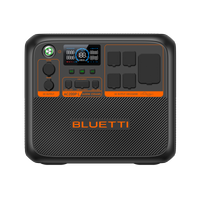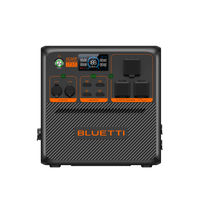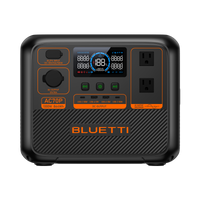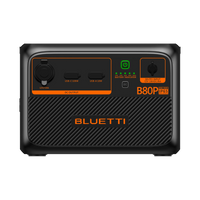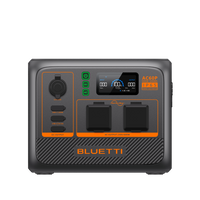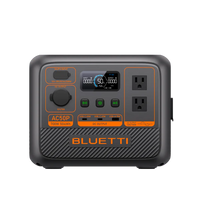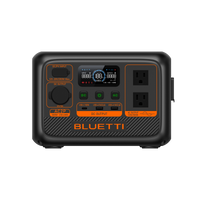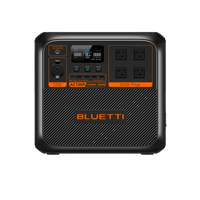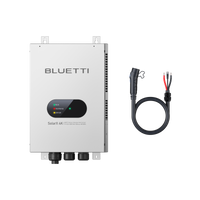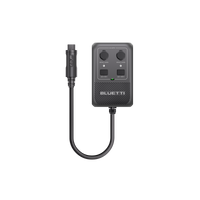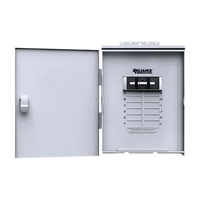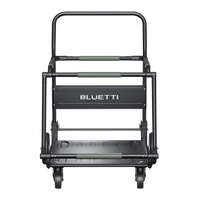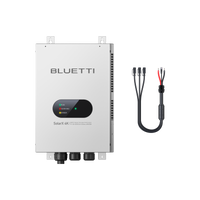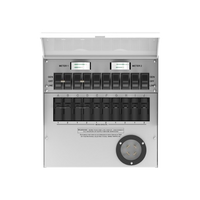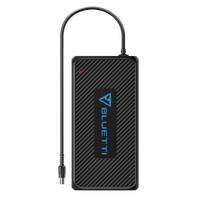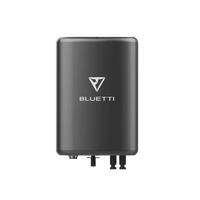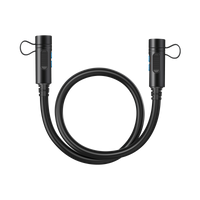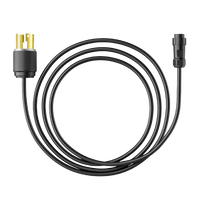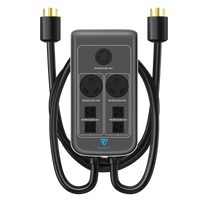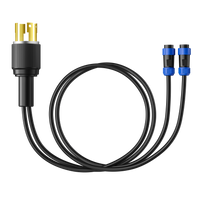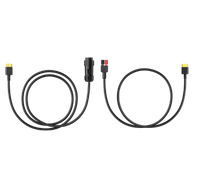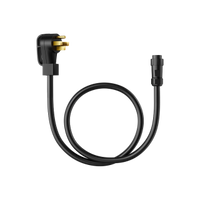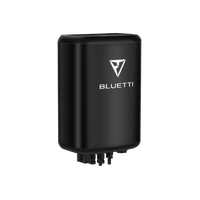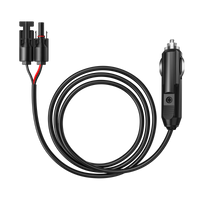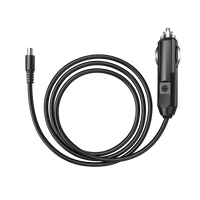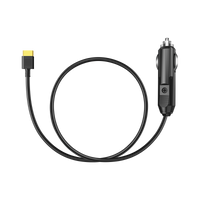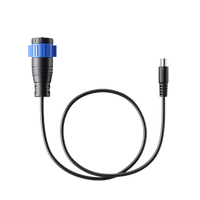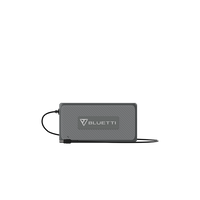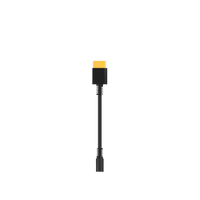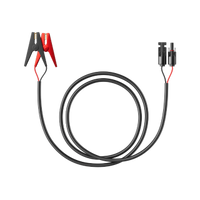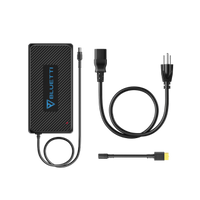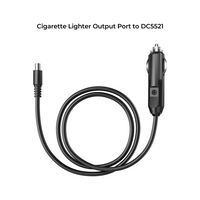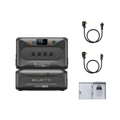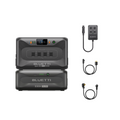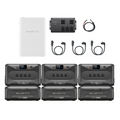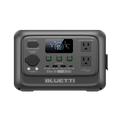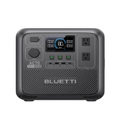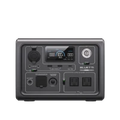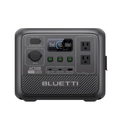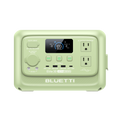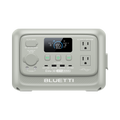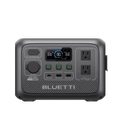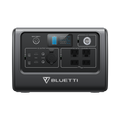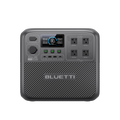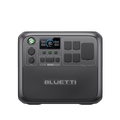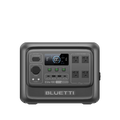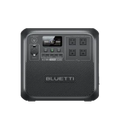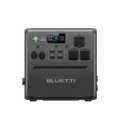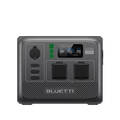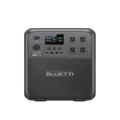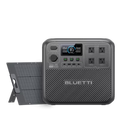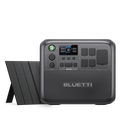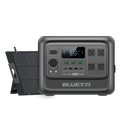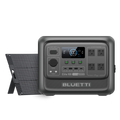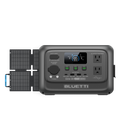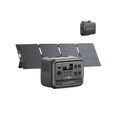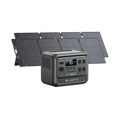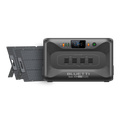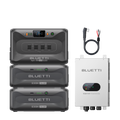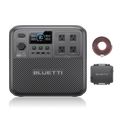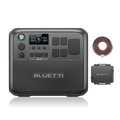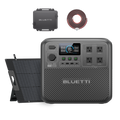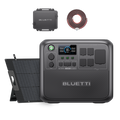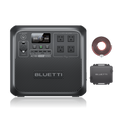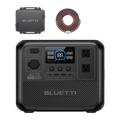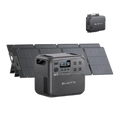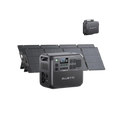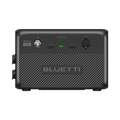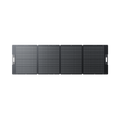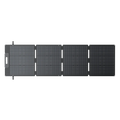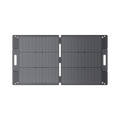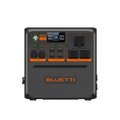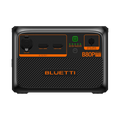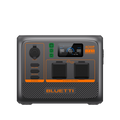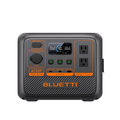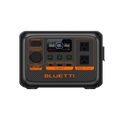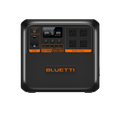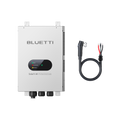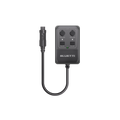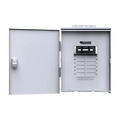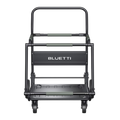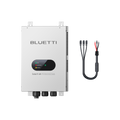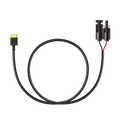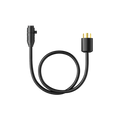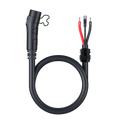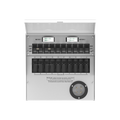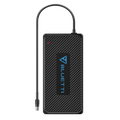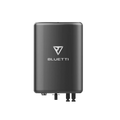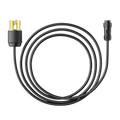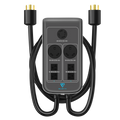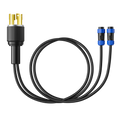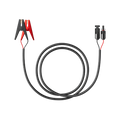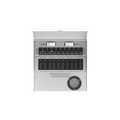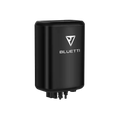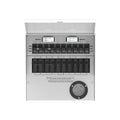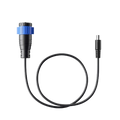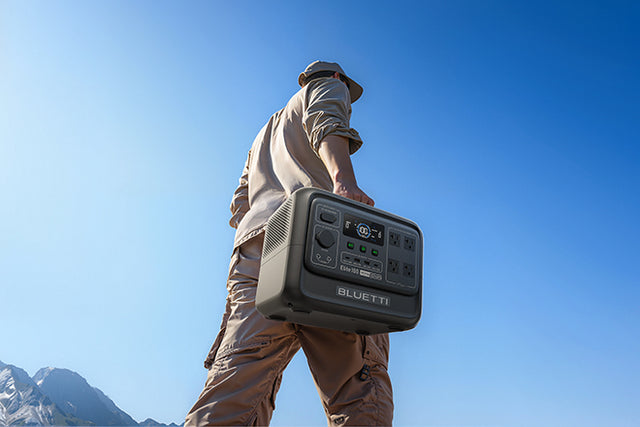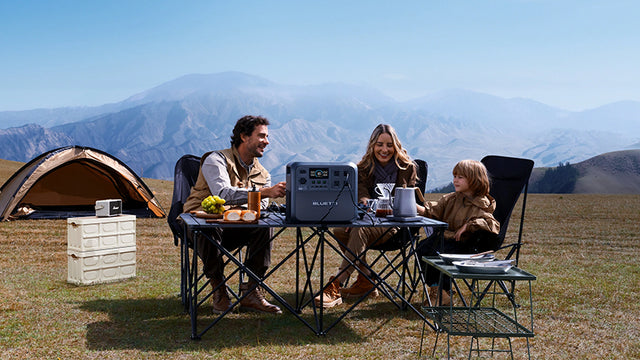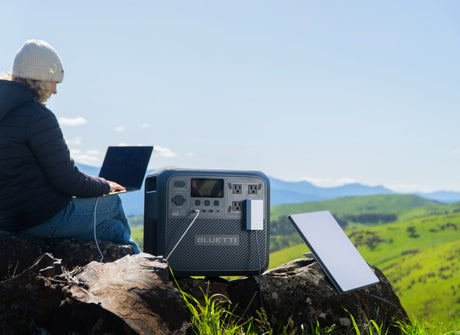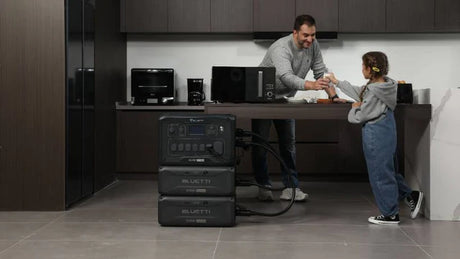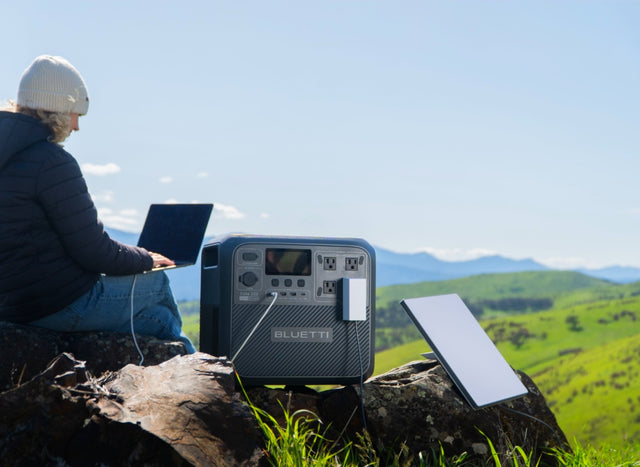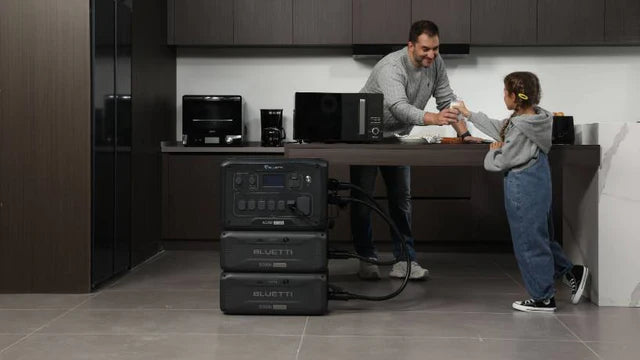In an era of rampant power outages of varied magnitude, dependability on the power grid has been a growing concern. It is about this fact that a backup power source can be a hedge against such an eventuality and can turn a potentially dangerous situation into a manageable one. This paper discusses a backup power source starting from its basic explanation to the intricacies of an Uninterruptible Power Supply (UPS). Next, this article will break down the difference between a backup power supply and UPS, referring to some of the best from BLUETTI. We're also going to talk about the advantages of UPS and help you decide whether you need to have a backup power supply ready or not. The information below is sufficient to help anyone, literally from city dwellers to the most solitary cabin in the woods, to be able to provide everything one would ever need by way of power.
What is the Backup Power Supply?
This is a substitute electric power supply that comes to be operational in times of unavailability of the main supply of power, which may be because of a power cut, overloading, or short-circuit conditions. It guarantees that in your home there is continued powering up and the main appliances as well as devices are made to be operational through the period when the power supply gets interrupted.
Four different kinds of backup power sources should be considered: battery backups, solar power systems, wind power systems, and generators, both portable and stationary. The idea of battery backups involves storing the power so that it can be given out whenever it is needed. Both solar and wind power systems rely on renewable sources in the generation of electricity that is harnessed. In its turn, a generator is to serve the purpose of mechanical to electrical conversion.

What is an Uninterruptible Power Supply?
This is part of the critical power system. It ensures that one has an unabated supply of power, thereby not having any reason to worry about blackouts and such-related problems. The increasing reliance of our society on data means growing requirements for purer and more reliable power. A UPS provides clear, continuous, and stable power flow that can shelter your equipment and data from disturbances emanating from surges, spikes, or dips that can lead to distortions and fluctuations.
A UPS is often simply referred to as a "backup system," available in either a single-phase or triple-phase setup, and able to draw power from various types of batteries or a flywheel component. In the same manner, the size of a UPS can vary, as can its capacity. It could be very small and standing near your desk, feeding your PC or another similarly small element, or it could be huge, capable of feeding an entire enormous business. Irrespective of the size, a UPS plays a crucial role in preserving power to vital systems and operations.
Difference Between the Backup Power Supply and UPS?
Even though both Uninterruptible Power Supply (UPS) and the backup power supply work in relation to one another, offering protection against power problems that may cause surges or sags, they display various differences.
A UPS can ensure a non-stop power supply to essential devices, filtering power that may be damaging—brownouts, flickering power, or surges—from interrupting operations. The unit actually works on AC power and converts it to DC for charging, while at the same time, when there is a power failure, still, the UPS will convert DC back to AC.
The opposite of these are common—especially in terms of backup power supply and battery backups that store and charge power at DC—which may not always be put ON during the course of fluctuations in power, as it does in a UPS.
What is more, there are more number of varieties and an array of battery backups that may seem to be each absolutely different from the other. This is a sharp contrast with UPS that is basically characterized under the heads of offline, line-active, online UPS.
Such differences need to be well understood to make the right choice of a power solution.
BLUETTI Home Battery Backup with UPS
BLUETTI is offering credible home power supply back-up solutions along with a UPS to keep your home energized. Below are two models:
AC500 + B300S Home Battery Backup

The AC500 + B300S is a model with a modular and expandable home battery backup system that embodies an AC500 power station and an additional B300S battery module. This is a 5,000W rated capacity and a 10,000W surge capacity, ensuring that it can run virtually anything in your house or garage. It uses a LiFePO₄ battery with over 3,500 life cycles to 80%. You can connect up to five B300S modules with the AC500 to expand the total capacity to 18,432Wh, thus running most home equipment for an even longer period.
Next, smart app control is one of the distinguishing features with the AC500 + B300S. And all this you can do sitting at your personal computer or using a smartphone that has WiFi or Bluetooth turned on. It gives you a chance to monitor parameters such as the state of the battery, input and output power, remaining time, and cycle count. For selection are the modes that one can switch between including eco mode, UPS mode, and the split phase mode among others it offers. It can help split the phase mode and turn your AC500 into a 240V/10KW system to drive your high-power appliances.
BLUETTI EP500Pro

It has a huge capacity of 5120Wh and allows for a pure sine wave in 3000W. It uses a LiFePO4 battery, capable of 3500+ cycles to 80%, in-built surge and automatic protection—literally lasting for years with minimal efficiency loss. All this has been fueled because of the fact that there is an in-built auto protector.
EP500Pro can be your emergency power generator at home, even with off-grid storage on camping or cabins and RV trips. It comes with the in-grid UPS mode and adaptable UPS mode to work as uninterruptible power supply at home. The unit, in the in-grid UPS mode, shall seamlessly transfer to battery power upon grid failure and back up to grid-supplied power on grid resumption. And in flexible UPS mode, the user can change voltage and frequency to different values, which will bring benefits to some sensitive devices or appliances.
Benefits of UPS
The Uninterruptible Power Supply systems provide a variety of distinctive benefits that ensure reliability and safety as far as your power supply is in question. These include:
- No break-in operation: UPS ensures that important equipment like computers and production lines are not interrupted in their operations and can keep all operations running without hiccups.
- Stability: Electronics within a UPS have control over when to start coming into play in order to provide alternate power whenever necessary. This keeps interruptions due to glitches or surges away, allowing safe shutdowns of primary systems when needed.
- Defense: UPS systems protect against such electrical irregularities as surges, spikes, dips, and outright failures. They recognize these problems and switch to alternate power sources before the electrical irregularity is able to do harm.
- Purification: Line-interactive UPS systems purify the incoming power and change product output. This means that internal systems are receiving a clear, stable supply without the irregularities.
Basically the UPS system gives protection from any type of power variation and ensures your devices and systems are never prone.
Do I Need a Backup Power Supply?
A power backup is very crucial. It is a facility that can't be taken for granted and hence actually ascertains comfort, conveniences, and even health in some cases. Occurrences like climate change have served to increase the excess heating and cooling demands on the power infrastructure, thereby leading to power cuts and failures that are gaining in both frequency and severity. But you need not worry about living in darkness or losing your indispensable appliances with a backup power supply.
With a generator providing back-up power, there is assurance for such medical equipment systems whose failure in power supply is life-threatening. It also ensures the running of other vital appliances, therefore preventing the destruction of food and possible failure of temperature control. Besides, it promotes enhancement to connect and communicate with family members and updating vital information. In the final analysis, a backup power source gives you peace of mind that you will not be thrown into a tizzy as a result of power grid complexity.
Final Thoughts
In a nutshell, a backup power supply is yet another needful item. Whether you are in need of a complete large solar-powered battery backup system for your whole house, or if your needs are down to requiring a simple small portable generator just for random use, there's certainly a system that's fit for you. The installation and initial cost might shock you, but peace and convenience always come with a price tag. This will help you avoid and ensure that while others are catching power blackouts, you will have no more outages and allow your home operations to flow smoothly. Get backup power today and enjoy these advantages over and over again. Keep in mind, it's not really having power in store; it's making sure comfort and safety and consistency are maintained in your daily way of life.






